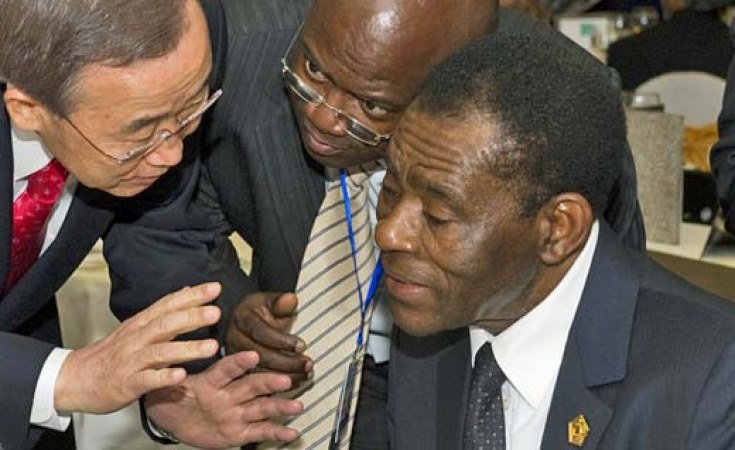Cape Town — The African Union's choice of Equatorial Guinea's President Teodoro Obiang as its new chairperson challenges his government to fulfill the organization's standards for democracy and human rights, says a rights group.
The group, EG Justice, said in a statement that his appointment "places pressure on the Equatoguinean government to fulfill its obligations to the AU and other multilateral organisations regarding democracy, human rights, social justice and corruption."
"By the end of Obiang's one-year chairmanship, we expect to see marked improvement in the… government's application of the fundamental principles of the African Union," said Tutu Alicante, the group's executive director.
Obiang was named as the new head of the African Union at the end of its recent summit in Addis Ababa. EG Justice is a United States-based NGO which describes itself as "the only international non-governmental organization solely dedicated to promoting human rights, the rule of law, transparency, and civil society participation in Equatorial Guinea."
EG Justice said it expected Obiang's government to demonstrate its commitment to meet the five key African Union principles: fostering democracy, the rule of law and basic freedoms; promoting human rights; increasing investment in health and education; combating corruption; and protecting women's rights.
The group added that the only widely-distributed media outlets in Equatorial Guinea are owned by Obiang and his son, and journalists are routinely censored and harassed. It called for a Freedom of Information Act and an end to restrictive press permit requirements.
EG Justice also said all cases of torture must be investigated and prosecuted. International organisations should be allowed access to detention facilities, and police roadblocks should be eliminated to protect the right of citizens to travel freely within the country.
The statement noted that Equatorial Guinea has not yet ratified the African Union's Convention on Preventing and Combating Corruption. It said corruption is deeply institutionalized in Equatorial Guinea.
"Effectively combating corruption requires the government to open its books, publish information on revenues and budgets, and to ratify the… convention."
The African Charter on Human and Peoples' Rights requires that all states end discrimination against women, EG Justice added. The government should promote women's rights by, for example, providing scholarships targeted specifically at promoting women's education.
EG Justice said most citizens still lack access to affordable, quality health care, and more than half of the population lacks access to adequate sanitation and potable water. Less than half of first and second grade students have access to textbooks and the primary school repetition rate more than doubled between 1999 and 2007.
"If governed with respect for human freedoms, Equatorial Guinea could become a beacon of hope and an engine of growth for the entire African continent," Alicante said.


